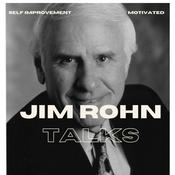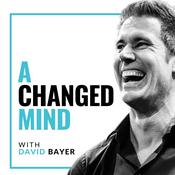Feeling Good Podcast | TEAM-CBT - The New Mood Therapy
David Burns, MD

Latest episode
508 episodes
- Meet Richard Lam--
Master TEAM CBT Teacher and Therapist!
Today we chat with Richard Lam. Richard is a licensed Marriage and Family Therapist in private practice in Mountain View, California. He is a graduate of Palo Alto University. He currently provides short-term therapy for anxiety, OCD, habits/addictions, depression, and relationship concerns using Cognitive Behavioral Therapy. Richard also trains other therapists in David Burn's model of CBT called TEAM-CBT Therapy. He is a certified Level 5 Master Therapist and Trainer in TEAM-CBT Therapy.
And today, Richard has gifts for you! They are fantastic! See below!
I began by asking Richard how he got interested in teaching. When he was first learning, he was tutored by Dr. Angela Krumm, an advanced TEAM CBT practitioner and one of the three founders of the Feeling Good Institute. He was loving the training, but one day she said, "That's all I can teach you. Now you have to start teaching!"
And that started the wagon rolling down the hill. Richard is particularly interested in developing free self-help tools for patients, but also runs a special training class for TEAM CBT therapists who themselves want to become trainers. It meets in-person at the FGI office on Mondays from 12 to 2 PM. If interested, contact Richard (contact information is at bottom of show notes.)
Richard is one of our most articulate TEAM CBT teachers, and is renown for some of his live demonstrations of specific techniques, like Forced Empathy. He has created a series of multi-page interactive teaching guides for a variety of techniques, so you can learn exactly how to do the Double Standard Technique, or the Externalization of Voices in a simple, clear, step-ty-step manner. Here are links to several examples. Check them out and feel free to share them with your patients if you are a TEAM therapist.
These links are all kick ass! Check them out and do the exercises. You'll be glad you did!
Link to Double Standard Technique
Link to Externalization of Voices
Link to Externalization of Resistance
Link to I Feel Statements, Part 1
Link to I Feel Statements, Part 2
Link to Feared Fantasy
Link to Forced Empathy
Link to Forced Empathy Handout
Link to Future Projection, for Habits
Link to Paradoxical Ultimatum
Richard tells us that mental health works a lot like physical health. When we don't regularly care for our bodies, things start to deteriorate and the same is true for our minds. These tools give you a way to keep nurturing your mental health so you can maintain a strong, healthy mind.
Richard and I also discussed Acceptance--one of the most difficult concepts for patients and therapists alike to "get." I was delighted to learn he has a five-point plan to help people grasp this concept.
Richard's Five Steps to Acceptance
1. The Win-Win Principle: How can I see this loss as a win?
In high school, Richard had a patient whose heart was set on making the varsity basketball team, and was heartbroken when he only made the junior varsity team. But then he got to thinking that it would be fun to be the start on the JV team because his best friend is also going to be in JV. He relaxed and started to enjoy his practices with the team.
And
He was promptly promoted to the varsity team!
2. Remember the butterfly effect!
Richard described getting angry and frustrated when he was late for an important appointment, and the car in front of him was moving slowly and caused a delay at a red light. His first impulse was to get angry and insist it SHOULDN'T have happened. But then, in reflection, he thought: "Wait a minute. This delay will change the entire trajectory of the rest of my life. And who knows, this could have save my life from some future tragedy if the trajectory of my life had been on time."
3, Growth mindset
I have always thought of this important idea in simple terms. There is really no such "thing," from a Buddhist perspective, as "success" or "failure." These are just experiences. But often things do not turn out as one hoped. Instead of caving in, giving up, or feeling depressed or frustrated, although those are perfectly reasonable human experiences, you can accept your failure and view it as an opportunity for growth and learning. Our 9 month old grandson has reminded me that when we are learning to walk, we "fail" constantly, falling over, etc. But these are steps in learning that eventually culminates in the ability to walk--which is a miracle!
4. The spiritual view
Acceptance can be thought of as letting go of judgement. Richard treated a woman who was angry at God because she could not have children, and she had always dreamed of having a big family. But from a medical perspective, her anger and constant agitation were actually the main reason she couldn't get pregnant. Shen she began working on reducing her anger using TEAM CBT, she was able to relax, and accept her fate with greater in peace.
And then she suddenly got pregnant!
I, David, have seen this on many occasions. Check out Podcast #7f9, one of our most popular podcasts ever, with Daisy: "What is the Secret of a Meaningful Life?" Or Podcasts 268 - 269, featuring live work with our beloved Dr. Carly Zankman. Or #349: "What if my family rejects me?" All of these podcasts were amazing, and resulted in rapid pregnancies!
5. Empathy vs anger
Richard described getting VERY angry when someone broke into his car and stole a bunch of stuff, but then asked himself why they did it. He realized that they were probably struggling and desperate for money--for drugs, for food, for family. Understanding someone's story can help lower the anger that you feel.
Richard, Rhonda, and David - Let's face it. We ALL procrastinate. Attempts to "help" nearly always backfire.
Dr. David Burns gets it. Procrastinators don't want help — they want something that actually works. In his upcoming free webinar on February 25, Dr. Burns introduces his paradoxical approach and ten powerful TEAM CBT tools that deliver results.
Sign up now at FeelingGoodWebinar.com.
Everyone is welcome! Therapists can purchase two CE credits if they attend the live event.
See you there! - (featured photo shows David, his wife Yvonne, and son, Joey, when young)
Meet the Incredible Dr. David Antonuccio, Part 2 of 2
Shrink, Songwriter, and Hero
Today we continue our conversation with my dear friend and esteemed colleague, Dr. David Antonuccio, a true scholar, clinician, researcher, musician, and champion of scientific transparency.
The Nicotine Patch Study
David revisited his landmark research on the nicotine patch, a costly trial involving roughly 600 participants who were randomly assigned to receive either a real nicotine patch or a sham patch. The goals were to assess safety and efficacy.
The safety data looked reassuring. However, the efficacy findings were unexpected: the placebo patch worked just as well as the active nicotine patch in reducing smoking. The sponsoring company published the safety data but refused to publish—and refused David access to—the efficacy findings, which showed no advantage for the nicotine patch. You can check the link to the NEJM article here.
David writes: "Notice the 48 week follow-up data were excluded in this paper despite the fact that they were available. That really annoyed me. I also now believe that the original version of the paper was ghostwritten and ghost analyzed by the industry folks.in other words. I'm not sure that the authors ever had access to the "raw" data before they were analyzed."
This was important because there was a decrease in smoking DURING the study among those wearing the patch, and getting their "fix" of nicotine that way. . . but what happened AFTER the study?
David writes: "Here is the link to the follow up paper that emphasized efficacy and included the 48 week follow-up data."
Notice that this paper was not published until three years later, when the Nicotine Patch had already been heavily advertised and sold on the market. This early experience in his career revealed the tension between marketing interests which focus on sales, and scientific interests which focus on truth and transparency—a daunting and frustrating pattern that would emerge again and again in his career.
Expert Testimony in a Tragic Criminal Case
David then described expert testimony he provided in a deeply troubling legal case. A 72-year-old woman, happily married for 50 years and a respected kindergarten teacher, had recently been prescribed Paxil, along with Ambien and Ativan.
She abruptly, and without memory, woke up in the middle of the night and stabbed her husband 200 times and was subsequently arrested for homicide.
There was no jury trial; instead, a plea bargain was used to determine sentencing. Dr. David Antonuccio was called as an expert witness in her defense. He described Dr. David Healy's research documenting a significant increase in both suicidal and violent urges among some patients taking SSRIs, especially Paxil. He argued that this woman's bizarre behavior was consistent with a drug-induced dissociative or fugue state.
Based in part on David's testimony, the charge was reduced to manslaughter, and the judge sentenced her to time served, allowing her to return home to her children.
For more on this topic:
David Healy's Research on SSRIs and Homicidal Urge
SSRIs Called on Carpet Over Violence Claims
Black Box Warnings and Patient Rights
David also emphasized the urgent need to revise Black Box warnings to reflect the full range of possible toxic or dissociative effects of psychiatric medications—not just suicidality. He has long advocated for a Patient Bill of Rights to ensure scientific transparency and informed consent.
A Surprising Conversation with Dr. John Nash
David shared a fascinating personal story about calling Dr. John Nash, whose life inspired the award-winning film A Beautiful Mind. In the movie, Nash's recovery from schizophrenia is portrayed as medication-dependent. However, Nash told David directly that this was not true—the medication narrative was added to the script, possibly out of concern that portraying his recovery without meds might discourage viewers from taking prescribed medications.
Nash said: "What saved me was the support of family and friends."
Music, Truth, and "Buzz"
David is also a talented songwriter. One of his songs, "Buzz," addresses the emotional and ethical issues surrounding electroconvulsive therapy (ECT). The inspiration came from a man in the Midwest who was legally ordered to undergo ECT against his will. A widespread public outcry ultimately convinced the judge to rescind the order.
Forgiveness and "In the Air Tonight"
One of David's favorite songs is Phil Collins' "In the Air Tonight," which he sees as a deeply spiritual musical meditation on forgiveness—a theme David considers one of the most powerful psychological forces we possess. David explains that the Phil Collin's song is about forgiveness, but more indirectly and specifically about the songwriter's inability to forgive.
And yes—David sang it live for us on the podcast!
You might be interested in this chapter that David coauthored on
the science of forgiveness
Thank you for joining us today. And heartfelt thanks to you, Dr. David Antonuccio, for your gifts of enlightened skepticism, ethical courage, incisive scientific thinking, and soulful musical talent.
David, Rhonda, and David - Stories from a Giant and Gadfly
Discover the Protest Music of RainFall!--
like "The Antidepressant Blues!"
Today, we are delighted to spend some time with a dear friend and highly esteemed colleague, Dr. David Antonuccio. David is a retired Clinical Psychologist and Professor Emeritus in the Dept. of Psychiatry and Behavioral Sciences at the University of Nevada, Reno, School of Medicine.
In addition to his academic work, David had his own clinical practice for 40 years. He has published over 100 academic articles and multiple books, primarily on the treatment of depression, anxiety, or smoking cessation. Since his retirement from practice in 2020, he has been making music as part of a duo called RainFall, with his musical partner Michael Pierce. Their music can be found on Spotify, Apple music, and Soundcloud, among other streaming services.
I first became familiar with David when a colleague recommended his article entitled: "Psychotherapy versus medication for depression: challenging the conventional wisdom with data," which was published in Professional Psychology: Research and Practice way back in 1995. The article blew my socks off.
In the first place, he had come to the many of the same conclusions I had come to, that antidepressants had few "real" effects above and beyond their placebo effects. However, he also had incredible insights into some of the problems and loopholes with drug company research studies on antidepressants, so I tried to get as many colleagues and students as possible to read that article.
Here is the article link
Although I had never met David, he became my hero. One day, while I was giving one of my two-day CBT workshops in Nevada, I was singing his praises and urging participants to read that classic article, but, unexpectedly, some people started chuckling.
At a break, I asked someone why people had been laughing. They said, "Didn't you know that David Antonuccio is here attending this workshop? He was out visiting the bathroom when you were singing his praises, so he didn't hear you!"
And that's how we met!
I couldn't believe my good fortune in meeting this brilliant and humble man in person. And to my good fortune, we became good friends right off the bat and eventually did a lot of fun professional work together, like our exciting conference challenging the chemical imbalance theory of depression which we called the Rumble in Reno.
I was also proud to be included as a co-author in a popular article with David and William Danton reviewing the brilliant work of Irving Kirsch. Kirsch had re-analyzed all the data on antidepressants in the FDA archives and concluded that the chemicals called "antidepressants" had few, if any, clinically significant effects above and beyond their placebo effects. In that paper, we also emphasized the ongoing power struggle between the needs of science and the needs of marketing. Science is devoted to discovering and reporting the truth, based on research, regardless of where it leads, while marketing, sadly, is ultimately loyal to the bottom line, even if deception is required.
Here is the link to our article:
And here is the full reference:
Antonuccio, D. O., Burns, D., & Danton, W. G. (2002). Antidepressants: A Triumph of Marketing over Science? Prevention and Treatment, 5, Article 25. Web link: http://journals.apa.org/prevention/volume5/toc-jul15-02.htm
I was sad when David retired from his clinical, teaching, and research career a number of years ago in order to spend more time on creating and recording music because, a passion he'd put on the shelf during the most active years of his career. I felt we'd lost an important and courageous leader in the behavioral sciences, and felt an emptiness, like an important pioneer was suddenly missing.
The following link provides a highly readable brief overview of
David's career focus and interests.
I was thrilled to learn just recently that David has partly resumed his role as gadfly of the behavioral sciences, rejoining the fight for science, ethics and for truth, regardless of where that leads or whose feathers are ruffled.
And now, we sit down together to reminisce about his personal life and experiences with many of the greats in our field, like Dr. David Healey, Irving Kirsch, and others who have also stood up for the truth, based on their research, in spite of intense opposition from the establishment.
And, today David also brings us his music, with his colleague, Michael Pierce, RainFall.
Some of his music has psychiatric / psychological themes, like his "Antidepressant Blues,"
Some of David's music has humanistic and political themes. He said:
Here's a song we just released yesterday that i will assume would not be relevant to the podcast. It is called Final Embrace and was inspired by a heart-breaking international wire photo of a Salvadoran immigrant father hugging his daughter, both deceased, in the rio grande in 2019.
Here's the link to the original news story.
David's two-man group, RainFall, wrote and recorded the original acoustic version of this song in 2020. He explains:
We decided to record a more dynamic updated version of the song with some electric guitar chords, electric bass, and drums. We are calling it "Final Embrace Electric". The story is still heart-breaking, and it still makes me cry to sing it.
Here is a link to the new version of the song,
And here are the heart-breaking lyrics:
Final Embrace Electric (For Oscar and Valeria)
By RainFall (David Antonuccio and Michael Pierce)
I'm sorry I couldn't help you
I'm sorry you lost your life
You took a deadly risk
I'm sorry for your wife
What were you supposed to do?
Stay home and watch your family die?
Or take a chance at freedom
Reach for the sky
Some say you should have known better
They say that you are a criminal
But they don't know your fear, your pain, your hunger
For them it's the principle
Some say we were here first
It's not our problem
Despite your dire thirst
We're full, no more asylum
Let's ask them what they would do
If their family were faced with danger
If they're honest, they'd take the chance
Hope for kindness from a stranger
You tried to get in the front door
But it was slammed closed
So you swam the deadly current
Despite the perilous flow
You never lost your grip
Though the river was not crossable
Only another parent can know
How that is even possible
Everyone can tell you loved your daughter
Even in that place
You never let her go
It was your final embrace
I'm sorry I couldn't help you
I'm sorry you lost your life
You took a deadly risk
I'm so sorry for your wife
Everyone can tell you loved your daughter
Even in that place
You never let her go
It was your final embrace
Your final embrace
It was your final embrace
It was your final embrace
Thank you for joining us today. Stayed tuned for Part 2 of the David Antonuccio interview next week!
David, Rhonda, and David
More Education podcasts
Trending Education podcasts
About Feeling Good Podcast | TEAM-CBT - The New Mood Therapy
This podcast features David D. Burns MD, author of "Feeling Good, The New Mood Therapy," describing powerful new techniques to overcome depression and anxiety and develop greater joy and self-esteem. For therapists and the general public alike!
Podcast websiteListen to Feeling Good Podcast | TEAM-CBT - The New Mood Therapy, Slay Girl Slay and many other podcasts from around the world with the radio.net app

Get the free radio.net app
- Stations and podcasts to bookmark
- Stream via Wi-Fi or Bluetooth
- Supports Carplay & Android Auto
- Many other app features
Get the free radio.net app
- Stations and podcasts to bookmark
- Stream via Wi-Fi or Bluetooth
- Supports Carplay & Android Auto
- Many other app features


Feeling Good Podcast | TEAM-CBT - The New Mood Therapy
Scan code,
download the app,
start listening.
download the app,
start listening.



































